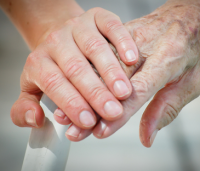As people age, new concerns arise. It becomes more difficult to communicate with patients and discuss their needs in a constructive manner. The anger, sadness, confusion, and fear that comes as individuals lose their physical and mental capacity often comes across in aggressive speech or behaviors. Then, there are those who suffer from mental and physical illnesses, which makes the situation considerably worse.
Their behavior may be understandable based on their condition, but it doesn’t make it any easier to handle. Your elderly patients will require some special consideration. As a healthcare worker, it’s your job to figure out ways to cope. As you try to determine the best strategies for managing elderly behaviors, here are some dos and don’ts to follow.
Do identify the cause of aggressive behavior.
One of the most common issues health providers face when dealing with the elderly is aggressive behavior. As dementia, Alzheimer’s, and age attack a patient’s mind, it often triggers an aggressive response. When there’s physical discomfort or other environmental factors threatening their already fragile state of mind, the mind jumps into a jerk reaction it knows will engender a response. Patients will often hit, kick, bite, curse, or verbally abuse the care provider as a result.
The best defense here is identifying the cause of the aggressive behavior and quickly finding a way to remedy it. First, be sure that the patient won’t put themselves or anyone else in danger when they’re having a fit, and then speak in a calm, reassuring manner to see if you can find the source of the agitation.
You may be able to spot the problem without talking to them as well. For example, if the heat is up too high, you might notice sweat on the patient’s skin, and check the thermostat. Turning down the heat and opening a window could help to abate the aggressiveness in this situation.
Don’t engage in an argument or force the issue.
When an elderly patient is being particularly difficult, the worst possible thing you can do is engage. Unless the patient is putting someone else or themselves in danger with their actions, forcibly restraining the person will only add to their confusion and decrease your chances of handling the situation calmly.
In addition, getting into an argument with the patient will only gratify the behavior. They’re looking for an emotional response from you, and arguing will make it more difficult to end things. Always seek to communicate with older patients calmly and patiently.
Do brush up on social behaviors associated with mental illness.
Most healthcare providers are aware of the causes and symptoms of mental illnesses that come as a result of age, but many don’t pay attention to the social behaviors or triggers. Brushing up on this kind of information can arm your medical professionals with the knowledge they need.
For example, when Alzheimer’s patients find themselves in a room with too much stimulus (a loud television set, bright lights, too many people, extreme temperatures, etc.) it can cause severe agitation. When care professionals are aware of these social behaviors, they can anticipate problems, removing offending triggers and preventing issues.
Don’t indulge in lengthy explanations.
The elderly are often confused. Their body and mind, which have served them well for the last 70 or more years, have suddenly turned on them with no explanation. This leads to confusion that’s often difficult to translate.
Some healthcare professionals make the mistake of treating the aged like any other patient, and dive into a lengthy explanation of why they’re sick or why they can’t remember their home address. It’s often better to avoid trying to reason with a patient. Instead, try to distract them and make them feel more comfortable with a new situation.
Every situation with an elderly patient will be different, but the most important thing you can do is make them comfortable and avoid things that might disrupt their mental stability. These general rules, combined with your own experience, will lead you to more successful elderly patient interactions.





